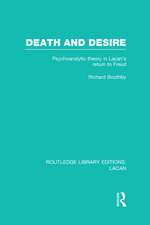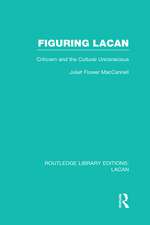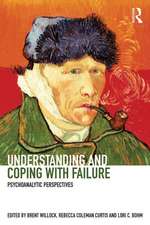The Clinical Thinking of Wilfred Bion
Autor Joan Symington, Neville Symingtonen Limba Engleză Paperback – 14 mar 1996
Preț: 342.25 lei
Nou
65.49€ • 71.42$ • 55.22£
Carte tipărită la comandă
Livrare economică 24 aprilie-08 mai
Specificații
ISBN-10: 0415093538
Pagini: 216
Ilustrații: black & white illustrations
Dimensiuni: 138 x 216 x 17 mm
Greutate: 0.28 kg
Ediția:1
Editura: Taylor & Francis
Colecția Routledge
Locul publicării:Oxford, United Kingdom
Public țintă
Professional and Professional Practice & DevelopmentCuprins
1. Disjunction Between Bion's Analysis and Freudian Theory 2. Bion the Man 3. The Emotional Catalyst 4. The Grid 5. The Myth and the Grid 5. Container/Contained 6. Alpha Function 7. A Diagnosis of Thought 8. Psychic Reality 9. The Growth of Thought 10. Transformations 11. The Study of Groups 12. The Phenomenology of Psychosis 13. Without Memory or Desire 14. Ultimate Reality 15. The Mystic and the Establishment
Recenzii
'This book takes the reader through Bion's mature thinking, linking it to his Grid...the Grid is an extraordinarily original and useful idea. Bion developed it as a way to understand the development and transformation of thought, both within and between the two individuals engaged in the therapeutic relationship...This book is strongly recommended to counsellors who feel they rely too much on theory, but especially to counsellors unaware of how much they place their theory between themselves and their clients.' - Counselling
Notă biografică
Descriere
Psychoanalysis seen through Bion's eyes is a radical departure from all conceptualizations which preceded him. In this major contribution to the series Makers of Modern Psychotherapy, Joan and Neville Symington concentrate on understanding Bion's concepts in relation to clinical practice, but their book is also accessible to the educated reader who wishes to understand the main contours of Bion's thinking. Rather than following the chronological development of Bion's ideas, each chapter looks in depth at an important theme in his thinking and describes how this contributes to his revolutionary model of the mind.





















